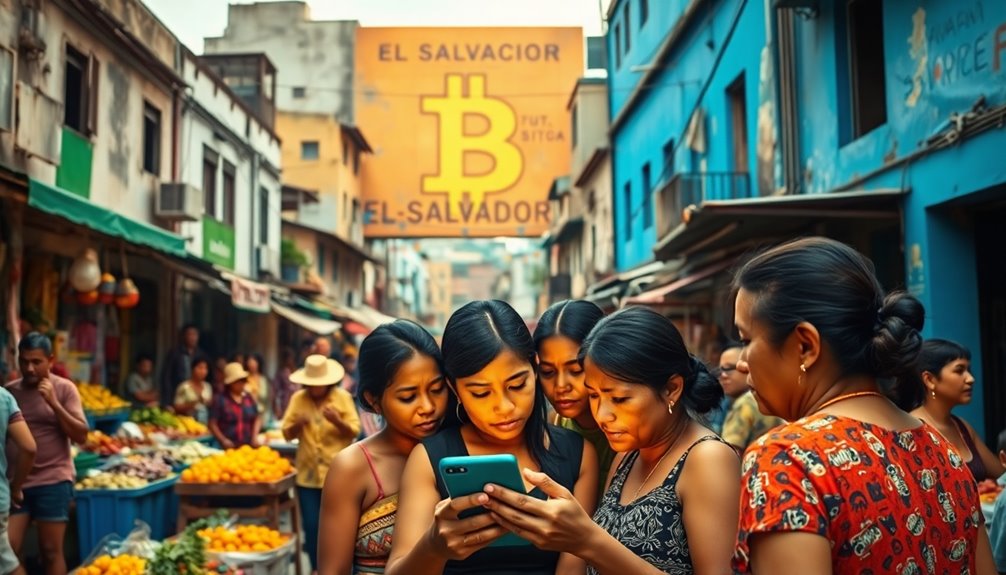You've likely heard about El Salvador's bold move to make Bitcoin legal tender, but have you considered the legal implications? This decision is stirring up concerns among financial institutions and complicating tax regulations. While the aim is to boost the economy and promote financial inclusion, the volatility of Bitcoin raises significant risks. So, how does this gamble play out in the long run? The answer may surprise you.

As El Salvador boldly embraced Bitcoin as legal tender on September 7, 2021, the world watched closely, curious about the potential impacts of this unprecedented decision. The legislative approval, granted on June 9, 2021, marked a significant shift in economic policy. With $150 million allocated to support this initiative, the Salvadoran government aimed to transform both the economy and the lives of its citizens. However, skepticism loomed large among the population, leaving many to question whether this gamble would pay off.
One of the primary motivations for adopting Bitcoin was to reduce the high costs associated with remittances. Since remittances account for over 20% of El Salvador's GDP, streamlining these financial flows could have profound implications for economic growth. Bitcoin promised lower transaction costs, potentially benefiting the unbanked 70% of the population. Despite the optimism, the actual implementation faced significant challenges, particularly in educating the public about Bitcoin's benefits.
The adoption of Bitcoin aims to cut remittance costs, impacting over 20% of El Salvador's GDP and aiding the unbanked population.
The introduction of the Chivo wallet aimed to make Bitcoin more accessible, allowing users to easily transact in the digital currency. With over 200 ATMs enabling conversions between Bitcoin and US dollars, the infrastructure was set up for success. Yet, as of 2022, more Salvadorans had Bitcoin wallets than traditional bank accounts, revealing a gap in financial literacy and public understanding of the new system. This lack of familiarity led to mixed feelings about the initiative, with many citizens initially opposing it. Bitcoin adoption led to a decline in confidence among the population, with a survey indicating that 34.8% had no confidence in the cryptocurrency.
Legal and regulatory factors also play a crucial role in El Salvador's Bitcoin strategy. The recognition of Bitcoin as legal tender carries tax implications, including the exemption from capital gains tax. However, the evolving legal framework has drawn international scrutiny, especially from institutions like the International Monetary Fund (IMF) and the World Bank, both of which expressed concerns about macroeconomic stability and environmental impacts.
Amidst these challenges, the volatility of Bitcoin remains a pressing issue. Its fluctuating value poses significant financial risks, raising questions about the long-term stability of the Salvadoran economy. As the government pushes forward with its ambitious Bitcoin strategy, it must navigate the complex terrain of public perception, technological hurdles, and legal uncertainties.
Ultimately, whether El Salvador's gamble on Bitcoin pays off will depend on the government's ability to address these multifaceted challenges and build trust among its citizens.









